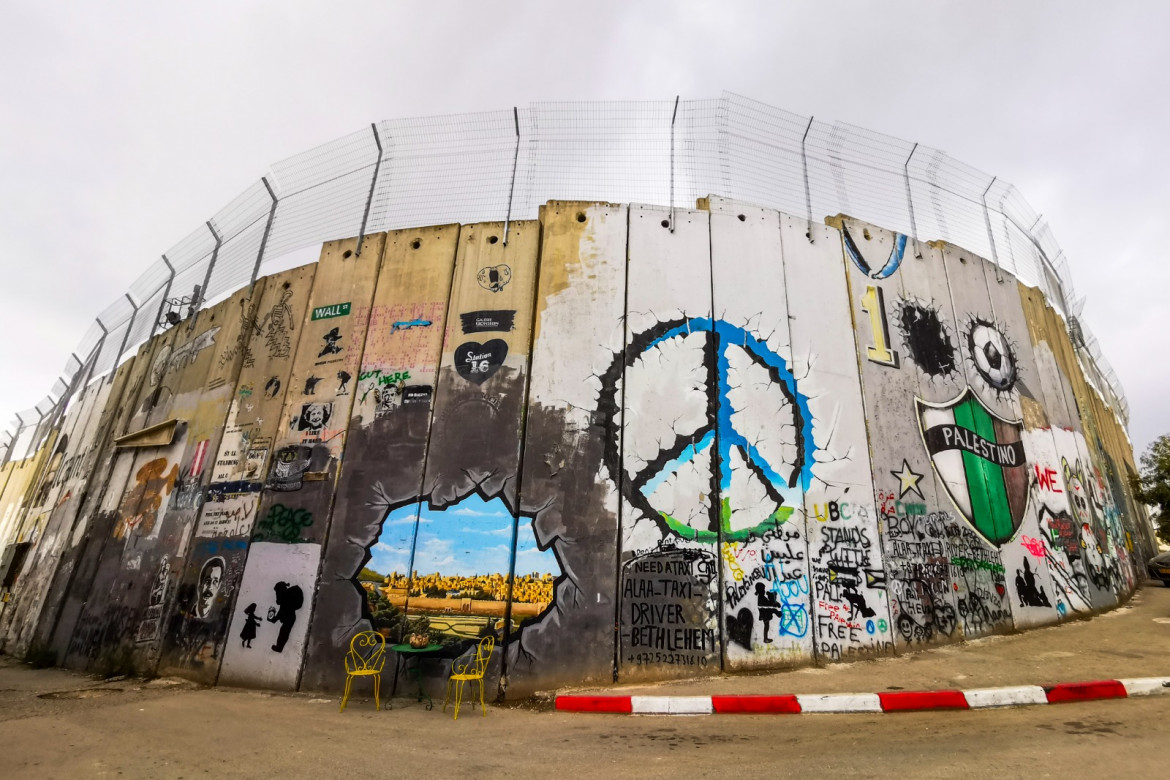Commentary
Our lesson from the Oslo process: A one-state solution for Israel-Palestine
The debate on the most just solution for Israel and Palestine has never ceased. We’re publishing the contributions of two leading entities in the Israeli and Palestinian landscape, those favoring one-state and two-state solutions.

Read the accompanying commentary by Two States – One Homeland.
The Oslo Accord, ceremoniously signed on September 13, 1993 has brought about 30 years of misery and deepening human rights violations in Israel-Palestine. In the past three decades, thousands have died, hatred has grown and despair has deepened. We, a Palestinian and an Israeli, wish to take stock of what has happened, assess the potential for change and underline the potential for effective action we can all take. In doing so, we must question the very foundations of a ‘peace process’ that was doomed from its inception.
The Oslo accords stipulated a temporary arrangement for limited Palestinian self-rule in small enclaves of the occupied Palestinian territories, and the resolution of core issues was deferred to a later date. The late Edward Said was quick to deliver a warning against this in October 1993. He believed the agreement could facilitate the continuation of Israel’s occupation and settlements, noting that “There is little in the document to suggest that Israel will give up its violence against Palestinians”. Said highlighted the colonial aspect of the agreement, drew lessons from the struggle to end apartheid in South Africa and offered a solution based on “equality or nothing”.
Israeli Labour party leaders have been surprisingly honest about the essence of the Oslo process. Shlomo Ben-Ami, a historian and foreign minister in Ehud Barak’s government, stated that “the Oslo agreements were founded on a neocolonialist basis” with the intent of imposing on the Palestinians “almost total dependence on Israel” in a “colonial situation” that was to be “permanent”. Israeli housing minister Binyamin Ben-Eliezer stated that Labor “builds quietly” in the West Bank, with the full protection of Prime Minister Yitzhak Rabin.
This bad faith mentality culminated in Israeli PM Ehud Barak’s conduct in the failed 2000 negotiations, epitomized by his statement that “there is apparently no partner for peace”. Barak was called out by the late Ron Pundak, one of the Israeli architects of the Oslo Accords. In a scathing post-mortem, Pundak wrote that “The insincere and incomplete implementation during Netanyahu’s [first] administration, and the mismanagement of permanent status negotiations under Barak, were the two main obstacles to reaching an agreement.”
The 2005 Israeli ‘Disengagement’ from Gaza, under PM Ariel Sharon, was a blatantly unilateral move intended to preempt international pressure and premised on contempt for the Palestinians. This sentiment was summed up by Sharon’s senior aide, Dov Weisglas, who said Palestinian statehood should be off the table, at least “until the Palestinians turn into Finns”. Little wonder the plan has failed to stop the cycle of violence, and has brought about a “manmade humanitarian disaster” in Gaza, according to Israel’s leading Israeli human rights group, B’tselem.
In recent years, Israeli PM Benjamin Netanyahu, with right wing allies across the world, has sought to erase the Israel-Palestine issue from the global agenda. Reality, however, asserts itself, and the crisis cannot be ignored. The public discourse increasingly recognizes the one-state reality in Israel-Palestine and applies the apartheid paradigm to it. Amnesty International, Human Rights Watch and B’tselem have done so, with the latter concluding that “A regime of Jewish supremacy [exists] from the Jordan River to the Mediterranean Sea: This is apartheid”.
Apartheid is a crime against humanity, and the International Criminal Court (ICC) is under increasing (and justifiable) pressure to take action and hold perpetrators accountable for severe violations of human rights and international law here.
The shifting discourse empowers those seeking a just and sustainable solution in Israel-Palestine. Rather than narrowly focusing on Gaza and the West Bank similarly to the Oslo process, our One-State Foundation supports a comprehensive framework which would grant all those residing between the river and the sea equal rights in a shared land. Numerous detailed plans for a democratic one-state solution have been published over the years. Instead of coming up with a new one, we believe there is room for legitimizing the general idea and encouraging all campaigns without choosing a specific plan.
According to recent data, a quarter of Israelis and 35% of Palestinians support a one-state solution here. This is remarkable, and quite encouraging, considering the fact that none of the major Israeli or Palestinian political parties, including most parties representing Palestinian citizens of Israel, have endorsed this solution. Moreover, a history of secret talks between Israeli settler leaders and Palestinians in the late 1990s is evidence that even powerful hardliners may seek dialogue when they sense that the political trajectory is no longer favorable to their cause.
The spiraling violence, especially in the West Bank, fills any vacuum left by those who throw in the towel. We must take action to bend the arc of history towards constitutional equality for all here. We hold the firm conviction that such a transformation will serve all communities. We all have much to gain from ending the current reality of occupation, oppression, apartheid and bereavement.
Originally published at https://ilmanifesto.it/un-unico-stato-dal-fiume-al-mare on 2023-09-13
